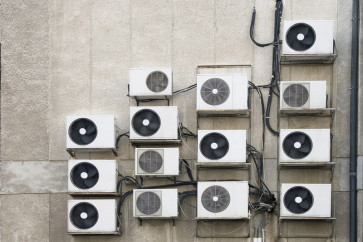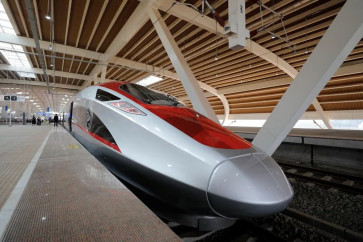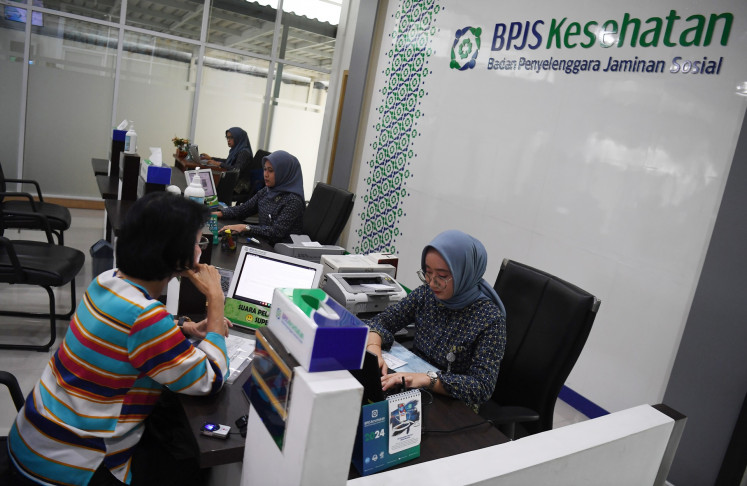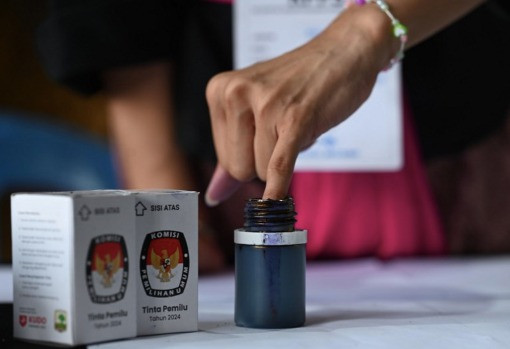Bank conversions key to speed up competitiveness: banker
Change Size
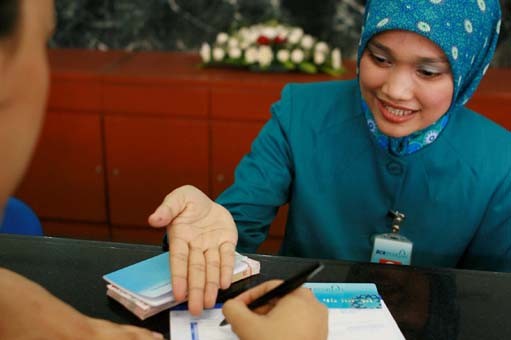 A BCA Syariah staff member serves a customer after an opening ceremony at its headquarters on Jl. Jatinegara Timur in East Jakara on April 5, 2010. (The Jakarta Post/P.J. Leo)
A BCA Syariah staff member serves a customer after an opening ceremony at its headquarters on Jl. Jatinegara Timur in East Jakara on April 5, 2010. (The Jakarta Post/P.J. Leo)
C
onverting conventional banks to sharia banks is more effective than merging several banks in order to build up the Islamic principle-compliant financial industry amid the Asean Economic Community's (AEC) introduction, a sharia banker has argued.
Maybank Sharia Indonesia banker Habibullah said that bank conversions would take only one year, enough for Indonesia to catch up in creating large-scale local sharia banks in anticipation of foreign bank expansions.
"It is not hard to implement conversions from conventional to sharia banks. Within one year the conversion can be done. To create a large-scale sharia bank, a merger is not the only option, as it can be done by converting large-sized conventional banks," he said in Jakarta on Monday.
Large-scale local Islamic banks, he continued, are becoming more necessary ahead of the ASEAN Banking Integration Framework (ABIF), which would lead to banking integration for the region, starting 2020. Indonesia's sharia banks, in terms of assets, are modest when compared to other countries.
The assets of Indonesia’s biggest Islamic bank, Bank Syariah Mandiri, is only Rp 70.25 trillion (US$5.33 billion, as of January 2016), less than half of Malaysia’s Bank Islam total assets, which stood at RM 46.35 billion or Rp 150.1 trillion (September 2015).
According to Habibullah, more large-sized Islamic lenders were necessary not only to anticipate competition but also to trigger growth. Currently, the cost of financing in sharia banks is higher than that of conventional banks due to limited assets, which stood at four percent of the industry.
"We are in the five percent trap, the growth of sharia banking is just 4.8 or 4.9 percent. With a bigger Islamic lender, there will be better collection and distribution to reduce the cost of funds," Islamic Development Bank Indonesia Country Director Ibrahim Shoukry told thejakartapost.com recently.
There are 11 sharia banks and 23 sharia business units along with 163 rural sharia banks (BPR Syariah) running in Indonesia. In the capital market, Islamic-bond issuance reached Rp 300 trillion, with 336 Islamic-stocks and 65 Islamic mutual funds. (ags)

